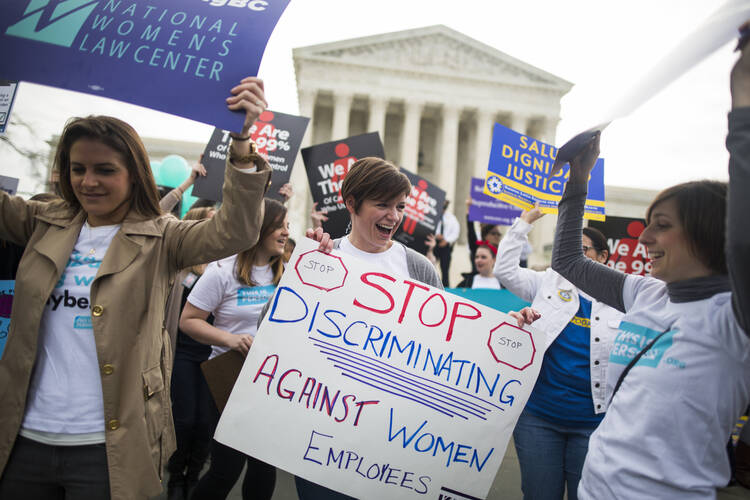The Obama administration is seeking input on ways the government can comply with religious employers' refusal on moral grounds to cover contraceptives for employees and at the same time make sure those employees get such coverage.
On July 22, the U.S. Department of Health and Human Services, along with the Internal Revenue Service and the Department of Labor, published a five-page document in the Federal Register opening a period for public comment on the issue.
Comments must be submitted on or before Sept. 20 by electronic means, regular mail, express or overnight mail, or by hand delivery or courier. Details on how to submit comments are available at http://tinyurl.com/howehxb.
The move by the Obama administration follows the decision on May 16 by the U.S. Supreme Court in Zubik v. Burwell, a consolidated case of challenges to the contraceptive mandate filed by several Catholic and other religious entities.
The Supreme Court in a unanimous ruling sent the case back to lower courts, vacated earlier judgments against those parties opposing the mandate, and encouraged the plaintiffs and the federal government to resolve their differences.
The court made it clear that it was not expressing an opinion on the merits of the cases brought against the federal government's health law and it also was not ruling on the issue of a potential violation of religious freedom.
Because of the "gravity of the dispute and the substantial clarification and refinement in the positions of the parties," the court stated that religious employers and the government should be "afforded an opportunity to arrive at an approach going forward that accommodates petitioners' religious exercise while at the same time ensuring that women covered by petitioners' health plans receive full and equal health coverage, including contraceptive coverage."
Zubik v. Burwell involves the Little Sisters of the Poor, Priests for Life, the Pennsylvania dioceses of Pittsburgh and Erie, the Archdiocese of Washington, and other Catholic and faith-based entities challenging the Affordable Care Act's mandate that most religious and other employers must cover contraceptives, sterilization and abortifacients through employer-provided health insurance.
"Zubik" in the case name is Bishop David A. Zubik of Pittsburgh. "Burwell" is HHS Secretary Sylvia Mathews Burwell.
The high court heard oral arguments in the case on March 23. Six days later, the court issued a two-page order seeking additional briefs from the plaintiffs and the federal government about how and if contraceptive insurance coverage could be obtained by employees through their insurance companies without directly involving religious employers who object to this coverage.
The plaintiffs, who do not fit the narrow exemption to the contraceptive mandate the government gives to churches, argue that providing contraceptive coverage even indirectly through a third party, as the Obama administration allows through what it calls an accommodation, still violates their religious beliefs.
The government argues its existing opt-out provision for these employers does not burden their free exercise of religion.
In its opinion, the Supreme Court stressed that sending the case back to lower courts should not affect the government from making sure women covered by petitioners' health plans obtain FDA-approved contraceptives, but it also means the government "may not impose taxes or penalties on petitioners for failure to provide the relevant notice" stating their objection to the coverage.








